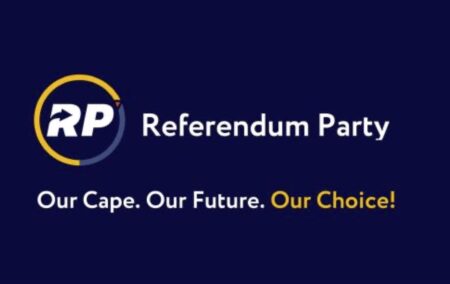Break-up of South Africa is already underway
I read with great interest Gabriel Crouse’s article, ‘Secession Movements Unmasked’, which in part examined the relatively poor performance of the Freedom Front Plus in the 2024 elections. Having competed in those elections myself, at the helm of the Referendum Party which also performed poorly, I found myself fundamentally disagreeing with much of Gabriel’s analysis.
If the Freedom Front Plus halved its vote because it supported secession, did the ACDP halve its Western Cape vote because it supported Christianity?
Notably missing from the article was any mention of the Multi-Party Charter (MPC). The MPC was a tactical masterstroke by the DA. It completely neutered the opposition, and, with the exception of the IFP, the party least likely to be fishing in the same pond, every other MPC party took an electoral bath.
As I tried to point out in vain from its inception, the MPC never had even the remotest chance of delivering a national majority. From the DA’s perspective, that was never even its intention. In 2019, three parties secured 89% of the vote, the other forty-five the remaining 11%. If the ANC fell below 50%, which was a virtual certainty, then two of the then big three would need to work together to form a government. The DA quickly realised this meant an ANC/DA government, by which time Helen Zille had already been drawing her DA/ANC/EFF ‘triangle’ for years.
Every attempt to ‘float’ the idea of an ANC/DA coalition (Zille, Steenhuisen and Hill-Lewis all tried) was met with a wail of outrage and had to be abandoned. The ‘Moonshot Pact’ which later became the MPC was the solution. Get people to believe that a vote for the DA could, just maybe, deliver a majority government without either the EFF or the ANC. When the results are in and voters actually have to choose between an ANC/EFF or ANC/DA government, they will finally be willing to accept the ANC/DA coalition.
Bravo, DA. Well played indeed.
Unitary state under pressure
What then for secession?
South Africa is unsustainable. It is a melting pot of conflicting cultures, languages, and values. It is only viable if it is held together by force, or by shared prosperity. I think we would all be delighted to experience the latter, but South African voters are fatally divided on what would be required to deliver that.
I do believe peaceful secessions are possible, but they depend upon timely interventions before the temperature in the kitchen gets too hot. Worryingly, the election results indicate a notable rise in the temperature.
The biggest winners in this election are MK (Zulu nationalism and an end to constitutional democracy), PA (Xenophobia, coloured nationalism, and the mass deportation of illegal foreigners), and the National Coloured Congress (coloured nationalism).
Even in our wildest imagination, the 2024 election was not an endorsement of the South African unitary state. Quite the opposite: the vacuum created by a failure to timeously address our radical differences is driving the debate on to the streets and into the hands of the politicians most unsuited to be trusted with it.
It is my prayer that moderate politicians on all sides take heed of what is happening, and create peaceful and democratic means for people to recreate what is now South Africa into the country those people want. In doing so, we must also be brutally honest and accept that we do not all want the same things.
Cape Independence still in play
As for Cape Independence, the Referendum Party and the Freedom Front Plus have failed to secure sufficient leverage to force the DA to call a referendum. I can only speak for the Referendum Party, but in the final reckoning, the DA’s electoral machinery simply overwhelmed us. Just as it did nationally with the MPC, the DA successfully convinced Western Cape voters that if they didn’t vote DA, the ANC would come back to power in the province. Just like with the MPC, it was not even remotely true, but just like with the MPC, it didn’t matter. Voters believed them.
By no means is this the end for Cape Independence. Polling has always shown that the overwhelming majority of Cape Independence supporters vote DA. We will have to find a different way to ensure that they are heard on Cape Independence.
An official referendum is the appropriate means. If the DA remains unwilling to ask the Western Cape people what they want, then a private referendum may be the only remaining option. It worked for Venice in 2014.
The views of the writer are not necessarily the views of the Daily Friend or the IRR.
If you like what you have just read, support the Daily Friend.

